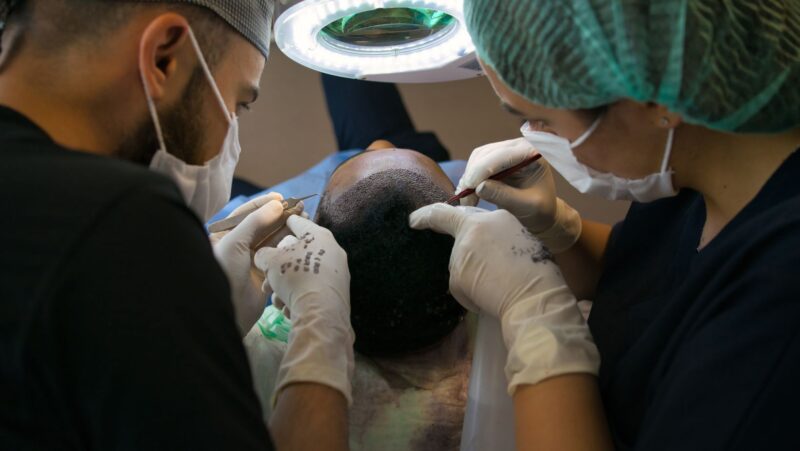
Medical research is a thrilling amalgamation of discovery, innovation, and rigorous methodology. It’s a realm where dedicated minds toil to unravel the human body’s complexities, searching for solutions to diseases that have plagued our species for centuries. If you’re a medical researcher, an aspiring scientist, or simply someone captivated by the frontiers of modern medicine, this post is tailored for you.
The path to groundbreaking medical research is not one tread lightly. It requires persistence, resourcefulness, and access to cutting-edge tools and data. In this comprehensive guide, we’ll lay out five pillars of resources that will equip you on your odyssey through the fascinating terrain of medical research. Remember, each resource is not just a tool; it’s a stepping stone toward the pinnacle of your professional success and the betterment of humanity.
1. Technology
Technology has revolutionized the medical sector and reshaped the art and science of medical research. The advancements are endless, from AI algorithms that can predict patient outcomes to sophisticated robotic systems that automate lab processes. In this digital era, staying up to date with the latest tech trends is not a luxury but a necessity. Here are a couple of technological advances you can use to your advantage as a medical researcher:
- Artificial Intelligence: AI and machine learning have risen to prominence, capable of combing through massive datasets to identify patterns or anomalies that the human eye could easily miss. They are not here to replace the medical researcher but to augment their capabilities.
- Next-Generation Sequencing (NGS): NGS empowers researchers to sequence entire genomes quickly, accelerating the pace of genetic research and personalized medicine. It is a critical tool for understanding diseases at a molecular level.
- Lab Automation: Automating routine and complex lab processes saves time and resources and minimizes the margin of error. Lab automation reduces mundane manual labor, allowing you to focus on generating meaningful results.
2. Biostatistics
In medical research, interpreting data is as crucial as collecting it. Biostatistics is not merely a branch of statistics; it’s a framework for analyzing complex health-related data, helping you draw more robust conclusions from your research.
A thorough understanding of biostatistics helps in the proper design of experiments, ensuring they are statistically sound and capable of answering the research questions at hand. Once data is collected, the challenge is to interpret it accurately. Biostatistics equips you with the tools to make sense of often-complicated datasets, drawing appropriate inferences that feed into the research narrative.
In the competitive world of medical research, high-impact publications can make or break a career. Biostatistical expertise ensures your research is publishable, meaningfully contributing to the collective knowledge.
3. Ethical and Regulatory Compliance
Ethical considerations must always underpin medical research. A solid ethical framework guides the responsible use of resources and protects the rights and privacy of patients and research subjects. Outlined below are ethical guidelines you need to follow in medical research:
- Informed Consent Procedures: Obtaining informed consent from research subjects is critical. Understanding how to develop and implement these procedures is foundational to ethical medical research.
- Institutional Review Boards (IRBs): Navigating the IRB review process is often complex but crucial. IRBs evaluate the ethical components of research proposals, ensuring compliance with regulatory standards before a study can commence.
- Data Privacy and Security: With the proliferation of digital patient data, maintaining privacy and security is paramount. Familiarizing yourself with data protection laws and best practices in encryption helps prevent breaches and maintain public trust.
4. Access to Biobanking and Tissue Repositories
Biobanks are treasure troves for medical researchers. They store biological samples representing diverse patient conditions, serving as critical resources for hypothesis testing and validation.
Biobanks can provide access to a wide array of samples from patients with specific diseases or conditions, including blood, tissue, and DNA. Having access to this breadth of clinical material enriches the research landscape. Some biobanks also provide longitudinal patient data, following individuals’ health journeys over extended periods. This historical perspective is invaluable in tracking the progression of diseases.
Biobanking also facilitates collaboration. Shared resources enable multiple researchers to work from the same datasets, fostering partnerships that can lead to more thorough and groundbreaking studies.
5. Professional Development and Training
Continuous learning is the hallmark of a proficient medical researcher. Staying abreast of scientific discoveries and evolving research methodologies is a non-negotiable aspect of professional excellence. Below are a few ways to develop your skill set in medical research:
- Workshops and Conferences: Attending workshops and conferences exposes you to the current trends and practices in medical research. They also provide networking opportunities that can open doors to collaborative projects.
- Advanced Degree Programs: Pursuing advanced degrees, such as a Ph.D. or a Master’s in a specialized field of medical research, offers structured education and research training, equipping you with an in-depth understanding of your area of interest.
- Lifelong Learning: Maintaining a spirit of lifelong learning allows you to adapt to the dynamic nature of medical research. Platforms offering online courses and webinars ensure valuable knowledge is always available.
Be A Constant Learner in Medical Research
As you venture into medical research, remember that pursuing knowledge is an honor and a profound responsibility. Each of these resources forms an integral part of your toolkit, edifying you to face the challenges of the unknown with confidence and poised to make discoveries that could alter the course of medicine.
It is a path rife with challenges and immeasurable rewards in the form of scientific contribution and the possibility of effectuating real change in patients’ lives. The future of medicine lies in the hands of researchers like you, armed with today’s resources to unlock tomorrow’s mysteries.














